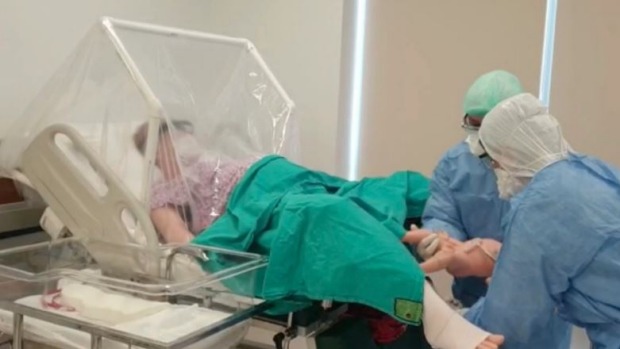
A study whose title suggested an “effective” way to give birth during the coronavirus pandemic has been temporarily retracted because the publisher says the word “effective” was included in the title by accident.
The method (pictured above) involved an enclosed, transparent chamber walling off the mother’s upper half from the rest of the world. It wasn’t very well received, according to an Essential Baby article that cited Twitter users referring to the “delivery table shield” as a “labor cage” and “greenhouse.”
The study, called “An effective protective equipment to use in the vaginal delivery of the pregnant women with suspected/diagnosed COVID-19: Delivery Table Shield” was published in the American Journal of Obstetrics and Gynecology (AJOG), an Elsevier journal, on June 15. Most of the authors were affiliated with the Turkish Ministry of Health at Ankara City Hospital.
But it was swiftly removed. The temporary retraction notice says:
Continue reading Journal temporarily withdraws COVID-19 “labor cage” study




